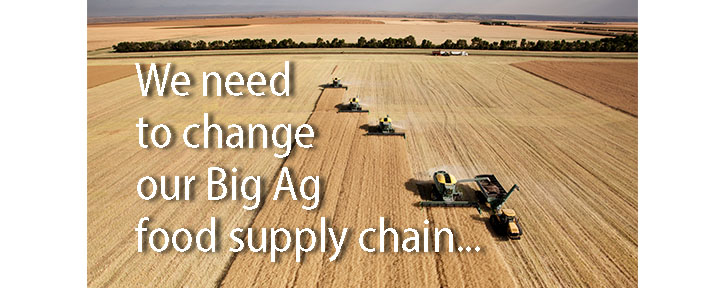
In just 4 months, the coronavirus tested the world’s food system – and FAILED. People panicked and started hoarding food, masks, and toilet paper! With shelter-in-place orders, farmers let edible produce rot and gassed, shot or buried livestock because food supply chains were broken. If this happened in the few months we have faced a pandemic, imagine what is going to happen when global warming changes our food supply due to droughts, water shortages, and an outdated supply chain.
By the end of this year, over a billion people will be without sufficient food supplies. The United Nations is holding a “Food Systems Summit” next year to craft a well-organized global effort to address food security and challenges that agriculture faces today. We need to rethink what we grow and stop over producing commodity crops; instead, we need to prioritize conservation methods. Farm groups are banding together to create a sustainable alternative to the Farm Bill.
Rather than forcing farmers to succumb to Big Ag, we need to support farmers as they grow a variety of vegetables using non-GMO seeds, maintain organic systems, and reduce pesticides and fertilizer use. We need a new business model that doesn’t create an assembly-line approach to food. This has caused countries to produce just a few types of crops and makes them dependent on imports to feed their people. That’s how we ended up with over production of corn in the US, wheat in Russia, and soybeans in the Amazon rainforest.
Big Ag is causing a rise in CO2. We need to make American agriculture carbon neutral and expand soil conservation programs. To do this, we’ll need Congress to support farmers and ranchers to employ climate stewardship practices. We can’t allow Big Ag to consume resources, crush biodiversity, pollute the environment, and negate agriculture’s potential climate benefits, while they produce crops and food with little variety or nutrition.
If the coronavirus pandemic has taught us anything, we don’t want to be dependent on food imported from other countries. This can be dangerous and can cause starvation when governments make export decisions and restrictions to feed their own populations or for political gains. Let’s support the small, local farmers and get Big Ag out of our food supply chain.
